THE MOST PROMISING PLACES TO WORK IN STUDENT AFFAIRS: INSTITUTIONAL PROFILES
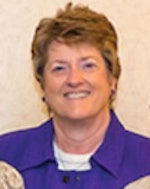
Arkansas State University-Beebe
Founded in 1927 as the Junior Agricultural School of Central Arkansas, Arkansas State University-Beebe (ASUB) is a regional state university that is an operationally separate, two-year institution of the Arkansas State University System. With campuses located in Beebe, Heber Springs, Searcy and Little Rock Air Force Base, ASUB offers associate’s degrees, certificates and non-credit training for business and industry.Vice Chancellor Deborah Garrett leads the division of Student Services, comprised of 68 full-time and 120 part-time staff members across various departments within the division, including the university police, the student success center, enrollment management, student life, the TRIO program, as well as student service units at Heber Springs, Little Rock Air Force Base and Searcy campuses, to name a few.
As president-elect of the Council for the Advancement of Standards in Higher Education (CAS), Garrett is a strong advocate for staff professional development; thus, her division strategically supports staff to pursue additional education and opportunities for advancement. For instance, cash incentives and institutional efforts such as LEAD are offered for degree completion. It’s no surprise, then, that the division’s guiding principles are professional development, diversity and inclusion.
Garrett shares, "Diversity and inclusion is very important here; we live in a small rural community and most of our students come from rural communities. We are intentional about our efforts to expose students and staff to the diversity of people on our campuses."
Commitment to diversity and inclusion involves helping staff understand the different types of students served and, consequently, the different types of approaches necessary for working effectively with diverse students. Staff within the division meet together twice per semester, while staff meetings are more frequent within offices or departments. Semester staff-wide meetings are for everyone, as Garrett explains: "Twice a semester all members of the Student Services staff — no matter if you’re a clerk, food service worker, or director — are invited to attend and talk about current trends, what’s happening in our legislature, meet new staff members, collectively establish our goals for the year and participate in a professional development opportunity." It’s this commitment to diversity and inclusion, for staff and students, that places ASUB among this year’s "30+ Promising Places to Work."

California State Polytechnic University, Pomona
Founded in 1938 and one of only two polytechnic universities in the state, California State Polytechnic University, Pomona (Cal Poly Pomona) is known for its learn-by-doing philosophy. The university recognizes that students who solve classroom problems today have an advantage as employees solving real-world problems tomorrow. Federally designated as a Hispanic-serving institution, Cal Poly Pomona was named eighth most diverse among regional universities in the West and 10th most diverse in the nation. This academic year marks Cal Poly Pomona’s 75th anniversary.Vice President for Student Affairs Douglas R. Freerleads 250 full-time and 50 part-time staff members across many departments, including athletics, enrollment management & services, the disability resource center, the career center, student health services, counseling & psychological services, student support & equity programs, parking & transportation services, university housing services, the children’s center, the office of student life & cultural centers, judicial affairs and university police, to name a few.
Freer leads Cal Poly Pomona’s Division of Student Affairs with a team of associate vice presidents, including Dr. Rebecca Gutierrez Keeton, who serves as associate vice president and dean of students. With direct oversight of the directors of the Office of Student Life and Cultural Centers and Judicial Affairs, Gutierrez Keeton manages a significant segment of the division proudly.
"I have worked in Student Affairs … for over 24 years. Each day, I am thankful for the opportunity I have to work with my student affairs colleagues who are committed to social justice, inclusion and diversity," remarks Gutierrez Keeton. "It’s our mission. It’s what we do every day."
Staff within the division affirm that students are first and important, but so too are staff members in student affairs. Staff enjoy many benefits of employment, including competitive salaries, caregiving leave, child care services and support for engagement in professional development.
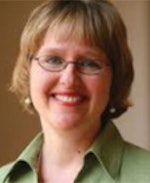
The College of William & Mary
Founded in 1693 by King William III and Queen Mary II of England, the College of William & Mary (W&M) boasts that it is unlike any other university in America. William & Mary is the second oldest college in the nation, but also a cutting-edge research university. It is highly selective, public and strives to offer a world-class education without the sticker shock.As vice president for student affairs, Dr. Virginia M. Ambler leads 70 full-time and 22 part-time staff members across many departments in the Division of Student Affairs, including student counseling, multicultural student services, student advocacy, student activities, residence life and student health, to name a few.
The Division of Student Affairs at W&M has a shared vision: To create an engaging learning environment where community is strengthened and individuals fl ourish. With this in mind, Vice President Ambler says, "Our division is strongest — and we are better role models for the students we serve — when all voices are honored and when colleagues are respected for the unique expertise, talents and perspectives they bring to our work." For this reason, the division socializes regularly, both personally and professionally, for staff to truly get to know each other and to explore diversity in its many forms.
"Creating an open, respectful environment is essential for staff to flourish in their roles," notes Ambler. "How fortunate I am to have professional colleagues who share that commitment to diversity, inspiring me every day to keep learning and growing!"
Staff members in the Division of Student Affairs at W&M agree about the value placed on diversity. For instance, staff like Linda Knight, director of campus recreation, praised W&M as a place where all staff, including underrepresented minorities, feel supported, welcomed and respected by colleagues and supervisors. "It is extremely helpful and comforting to work in a division that values who you are as well as the work you do," Knight remarks.
W. Taylor Reveley III, president of William & Mary, praises the Division of Student Aff airs for doing "remarkably eff ective work [in] pursuing diversity and inclusion on our campus." Indeed, the student aff airs staff at W&M is viewed as equal partners in achieving the educational mission of one of the nation’s oldest institutions.

Lehigh University
Founded in 1865 by Asa Packer, an industrial pioneer, entrepreneur and philanthropist, Lehigh University is a premier private residential research university. Lehigh community members, students, faculty and staff are committed to fostering a rich, high-quality educational experience in which all can learn, work and live together while transcending racial, cultural and other boundaries.Lehigh students flourish in an environment where they are pushed to learn from their life experiences as well as from the diverse backgrounds and opinions of those around them.
Vice Provost John Smeaton leads the Division of Student Affairs, comprised of 37 full-time and 15 part-time staff members across many departments, including the center for academic success, counseling and psychological services, first-year experience, LGBTQIA services, military science and leadership and multicultural affairs and residence life, to name a few.
The mission of the Division of Student Affairs at Lehigh is clear: To promote success in both the academic and personal dimensions of students’ lives. A single mission unifies those within the division; staff members enjoy many benefits of employment, including competitive salaries, caregiving leave, child care services, flexible work schedules and formal mentoring. Clarity of focus, employment benefi ts and a fairly diverse staff make Lehigh a promising place to work in student affairs.

McGill University
Founded in 1821, McGill University is one of Canada’s bestknown institutions of higher learning and one of the leading universities in the world. An English-speaking university located in the heart of Montréal, the largest city in Canada’s French-speaking province of Quebec, diversity is McGill at its core.As deputy provost of student life and learning, Professor Ollivier Dyens leads a division comprised of student services, teaching/learning services, athletics, recreation, residential life, dining services and enrollment services, to name a few. Dyens is assisted by Jana Luker, executive director, services for students. Student Services is comprised of 150 full-time and 20 part-time staff members, and includes 14 distinct units.
As an academic, Professor Dyens believes in working collectively with his colleagues to gather as much input from staff members as possible, an approach he calls "collective intelligence through horizontal leadership." Senior staff in the division see themselves as more than supervisors, but also major supports for new and entry-level staff. Dyens explained his role as providing professional development to student affairs staff members and opportunities for advancement, even if that meant "leaving their present unit, but staying within the larger university."
Several staff members identified the division’s core values: diversity, sustainability, inclusiveness, student-centeredness, integrity, transparency, collaboration and accountability. These values shape policies and practices of the workplace; for instance, student affairs staff are encouraged to engage in community involvement by taking time off, flexible schedules or including them in long-term planning. Luker and Dyens believe it is important that all student affairs staff members feel connected to McGill and the larger Montréal area.
Fostering inclusion and promoting diversity are the "order of the day" at McGill. Staff in the division stress the importance of "just doing it," believing that extra work and time pay off in the end. Being included as one of this year’s "30+ Promising Places to Work" is one such reward.
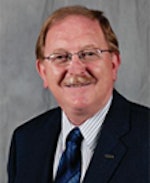
North Dakota State College of Science
Founded in 1903, North Dakota State College of Science (NDSCS) is one of the oldest two-year, comprehensive, residential colleges in the nation. NDSCS delivers learner-focused education through a unique and evolving collegiate experience. Using innovative delivery strategies, NDSCS anticipates and responds to statewide and regional needs by providing access to occupational/technical programs, transfer programs and workforce training.The associate vice president for academic and student affairs, Dr. Philip Parnell leads 39 full-time and 45 part-time staff members in the Division of Student Services, which brings together several interrelated areas with the intent of creating a foundation for students’ holistic personal and academic success. Departments within the division include residence life, student activities and health and counseling services, among others.
With a focus on developing the whole student, the Division of Student Services at NDSCS intentionally creates a supportive and welcoming space that allows all members of the campus to engage in the learning process, grow, change and find a sense of belonging. Staff within the division can be found attending performances, concerts, presentations or lectures to learn about diversity, differences, inclusion and culture. Associate Vice President Parnell shares that there is always an opportunity to "develop teaching and learning opportunities necessary to promote cultural appreciation" at NDSCS.
Committed to inclusive excellence, the campus is advised by a 20-member Diversity Council, which reflects an institutional commitment to the matter. Michelle Griffin, outgoing tri-chair of the Diversity Council, shares: "If we do nothing more than [serve as] the starting point for difficult conversations between our students, then I feel we have succeeded." The Diversity Council does more than meet and serve as a starting point for conversations, however; it also sponsors programs, sets standards for appropriate behavior and offers activities that promote deep understanding of diversity in its broadest sense. Staff enjoy employment benefits such as caregiving leave, child care services and flexible work schedules to accommodate the needs of people from various backgrounds, making it one of this year’s "30+ Promising Places to Work in Student Affairs."

Ohio Wesleyan University
Founded in 1842, Ohio Wesleyan University (OWU) is a national liberal arts and sciences university with a major international presence. Already honored as one of the nation’s finest liberal arts undergraduate institutions, OWU is moving ahead with bold curricular initiatives that connect theory to practice in a global context.Vice President Craig Ullom leads the Division of Student Affairs, comprised of 40 full-time and 10 part-time staff members across eight departments, including career services, counseling services, multicultural student affairs, public safety, residential life, student conduct, student health services and student involvement.
The Division of Student Affairs at OWU believes that the celebration of diversity and advocacy for inclusion is the difference between some and all students succeeding, learning and growing. Through strategic engagement of diversity and inclusive excellence, the division promotes the educational mission of the institution for all students. Whether on a service trip or living in the residence hall, OWU student affairs staff members utilize intentional, intergroup dialogue around areas of difference to facilitate understanding and ultimately create a transformational educational experience for students, faculty and staff. Andrew Peterson, assistant director of residential life, reflects: "Without such dialogue, we are merely a shell of the community we could become." But with it, OWU’s Division of Student Affairs is so much more.
Indeed, diversity and inclusion are core tenets of success for the Division of Student Affairs. Staff members enjoy many benefits of employment, including competitive salaries, continuing educational opportunities, caregiving leave, stress reduction programs and flexible work schedules. Employment benefits also reflect a deep commitment to social justice. Residential Life Coordinator Levi J. Harrel remarks: "Diversity is something that we can all work to better understand, but it is also something that we must live in order to gain an authentic understanding." Authentic understanding, inclusive excellence and the liberal arts tradition all come together to make Ohio Wesleyan one of the "30+ Promising Places to Work in Student Affairs."
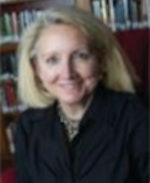
Sweet Briar College
Founded in 1901 and located in Central Virginia, Sweet Briar College (SBC) is a small liberal arts college that strives to empower and educate young women to build and reshape their world however their passions lead them.Led by Cheryl Steele, dean of co-curricular life and vice president of student affairs, the Division of Student Affairs employs 13 full-time and three part-time staff members across several departments, including first-year and sophomore programs, residence life, student involvement and programs, career services and campus student employment, health services and counseling, outdoor programs, the leadership certificate program and student spiritual life, to name a few.
At its core, Sweet Briar is committed to inclusion and respect. Steele and her colleagues aim to create a student affairs staff that reflects the diversity of SBC’s student body. Steele affirms that it is a priority: "The commitment to inclusion is across the college; it is embedded in everybody’s job. It is a primary goal of our division and a part of our college’s strategic plan, 'Expand Whom We Serve.'"
Beyond leaders, staff within the division also affirm the importance of diversity in student affairs at SBC. Tasha Gillum, Sweet Briar alumna and director of outdoor programs, shares that she feels part of a "connected unit" that provides autonomy, support from senior leadership and many opportunities for collaborations to meet the unique needs of their students. In her tenure at SBC, Gillum — like many others — has had conversations exploring the privilege of staff and students among other professional development opportunities. Indeed, diversity and inclusion are shared commitments at Sweet Briar. As Gillum shares, "All are responsible for creating [the] community they want to see on campus."
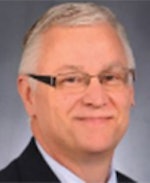
Texas A&M University-Corpus Christi
Founded in 1947, Texas A&M University-Corpus Christi (TAMUCC) is an expanding, doctoral-granting institution committed to preparing graduates for lifelong learning and responsible citizenship in the global community. TAMUCC is dedicated to excellence in teaching, research, creative activity and service. Its supportive, multicultural learning community provides undergraduate and graduate students with a challenging educational experience. Federally designated as a Hispanicserving institution (HSI), TAMUCC’s strategic location on the Gulf of Mexico offers many advantages for gaining national and international prominence.Vice President Don Albrecht leads the Division of Student Engagement and Success, comprised of 65 full-time and five part-time staff members across many departments, including career services, the counseling center, disabilities services, health services, judicial affairs, recreational sports, the university center & student activities and university housing, to name a few.
Diversity and inclusion are guiding principles of the Division of Student Engagement and Success at TAMUCC. Celebrating diversity and its many benefits also leads staff to recognize how power, oppression, marginalization and privilege operate both in society and on campus. As a result, staff are encouraged to participate in a variety of professional development opportunities that offer tools or skills for working effectively with students. Dr. Jacqueline Hamilton, director, recreational sports, shares: "[It’s] much more than just promoting awareness of equity, diversity and inclusion. [It’s developing] the competencies and resources to embed equity, diversity and inclusion into programming, services, student employment and student development to make them active processes."
At TAMUCC, and especially within the division, diversity and inclusion are core tenets of excellence and success. Staff members enjoy many benefits of employment, including competitive salaries, caregiving leave, educational leave and flexible work schedules. Employment benefits also reflect a deep commitment to social justice. Senior Director of Student Life Lisa O. Perez remarks: "At [its] core, it’s about respect and unconditional human worth; treating each other as valued members of our community; [and] commit[ment] to being inclusive, fair, equitable and non-discriminatory in all of our practices."

University of Baltimore
Founded in 1925 as a private institution, the University of Baltimore (UB) is a public undergraduate, graduate and professional university located in the heart of Maryland’s largest city. UB’s schools and colleges provide real-world education in business, law, public affairs and the applied arts and sciences. As associate vice president for student affairs in the Division of Enrollment Management and Student Affairs, Shelia Higgs Burkhalter leads 37 full-time and 15 part-time staff members across many departments within the division, including the achievement and learning center, campus recreation and wellness, the career and professional development center, the counseling center, the center for educational access, the office of community life, the Rosenberg Center for Student Involvement, the diversity and culture center, the student center and UB Living, to name a few.Higgs Burkhalter and her staff recognize the importance of diversity and how it shapes their work with students. A few years ago, the division created a robust professional development program for staff members that supplements subject matter expertise with information about current enrollment trends, developmental theory and standards, as well as a philosophy of student affairs practitioners as educators.
t is clear that UB’s student affairs division is committed to diversity and inclusion. Higgs Burkhalter stresses, "Just because we have a diverse population on our campus, it doesn’t mean we are where we could be in terms of equity, diversity [and] inclusion." Besides working to foster inclusion for students, "[UB student affairs staff members work to ensure they they] feel comfortable in that [diverse] environment and are given the tools and support and resources they need in order to thrive," according to Higgs Burkhalter.
Higgs Burkhalter celebrates the success of her staff. "I work with a small but mighty group of student affairs folks … staff ready to move to the next level," she shares. "...[Indeed] to be a student affairs professional at UB is a rewarding experience where you are valued as an individual for the talents, gifts and strengths you bring to the table."
